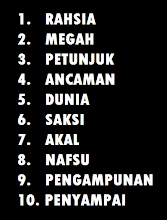All in all, a good swan song. He was in control of himself, he was confident and assured, neither bitter nor crowing. He did not fumble even in extempore mode, a remarkable achievement in view of the charged environment and subject of his speech. He did not lash out at the coalition government. He did not curse the role of the media whose freedom he had made possible and which turned against him in the bitter end, and he did not criticise the lawyers’ movement that is baying for his blood. Unfortunately, there was no mea culpa, especially his own blunders vis-à-vis the judiciary. But this is understandable since he doesn’t want to give his opponents a stick with which to beat him when he is defenceless. He did mention his extraordinary “powers” but said he had decided against using them. This must be accepted as an act of political wisdom rather than grace or generosity.
Mr Musharraf has gone from the political scene of Pakistan for a number of reasons, foremost being his gradually weakening legitimacy at the head of the political order. There are several types of legitimacy that are clearly or tacitly accepted as expressions of norm in Pakistan which he progressively lost. The first condition is, of course, constitutional which becomes available through the interpretive agency of the Supreme Court of Pakistan. The second condition is political support which becomes available through a political party which legitimises a military ruler indirectly by contesting elections and winning them. The third condition is support of the army. Unfortunately, this latter factor has acquired the status of a category because of Pakistan’s revisionist nationalism and the status of the army as an arbiter when the civilian system challenges the “security of the state”. Political leaders too have leaned on this legitimising factor for coming to power and for maintaining themselves in power. The fourth condition is derived from economic management. This applies to all states big and small, but in the case of Pakistan it means breaking out of international isolation and avoiding the consequences of economic mismanagement by courting the support of the United States. Mr Musharraf gained this legitimacy by retaining the support of the Bush Administration until a clash of legitimacies (army versus NATO-ISAF) made it difficult for him to pass off his double-dealing as political ambivalence. This began to happen after his policy of giving shelter to the Taliban leadership of Afghanistan in Quetta could not be maintained without adverse reaction from Washington, and his strategy of retaining domination of Afghanistan resulted in cross-border Taliban raids into Afghanistan.
Mr Musharraf’s constitutional legitimacy first wore thin in December 2004 when he decided to stay on in power by retaining his two offices. Had he separated them he could have squeezed some more legitimacy out of the political system. At the same time his rule was not able to control lawlessness in the country. He was attacked by the elements he had earlier decided to retain as an “option” for Afghanistan. Pakistan started losing internal sovereignty and territory to terrorists. His nadir came in 2007 when he blundered by sacking the chief justice of Pakistan. An extraordinary lawyers’ movement supported by civil society literally brought him to his terminal blunder, the declaration of emergency in November 2007.
His claim that he was in favour of reconciliation is not so convincing. He did not like the idea of making up with the mainstream parties of the country. The National Reconciliation Ordinance (NRO) was thrust on him by the Americans and he went on record as saying that he had accepted it under duress. He did not want Benazir Bhutto to come back when she did and today a lot of people suspect his complicity in her assassination. Saudi Arabia, likewise, thrust the PMLN leader Mr Nawaz Sharif on him. He simply didn’t have the power to refuse.
Finally, it was the incumbency factor that got him. Staying on in power beyond five or six years is simply not an option. Even in America, legitimate second tenure in office brings some degree of opprobrium to the incumbent. One ugly blowback in the post-Musharraf period may be the rolling back of some of the good he did. One hopes that this will not happen. Politicians will not have the luxury of blaming him any more. His legacy is undeniably there and the good that he did must stand, even though this is too emotional and passionate a moment to dwell on it with any degree of objectivity. The fact that he did not bad-mouth the government in his speech should enable him to live in peace in Pakistan. But whether this will be possible or not still remains to be seen.
Second Editorial: Local resistance to Taliban
After the people of Buner, Upper and Lower Dir in the Malakand Division surrounded the Taliban terrorists and put them under an ultimatum to leave their territory, it is the people in Bajaur who have now stood up to the marauding activities of the “militants”. Hundreds of tribesmen of the Mohmand area of the Bajaur tribal agency have decided that they have to protect themselves against those who destroy their habitat in the name of Islam. The same kind of reaction to the terrorists is taking place in Kurram too.
This is a new and good development, and in these cases it has happened where the Pakistan army has come down and corrected the imbalance of force that stood in favour of the outlaws. Where the local population is left completely vulnerable to the heavily armed bandits, this resistance is not there. This is what the government needs to encourage, but this will happen only if the government goes down and reorganises the long-suffering people under the umbrella of a military operation, and then doesn’t let the people down by making “peace deals” with the Taliban. *










0 comments:
Post a Comment